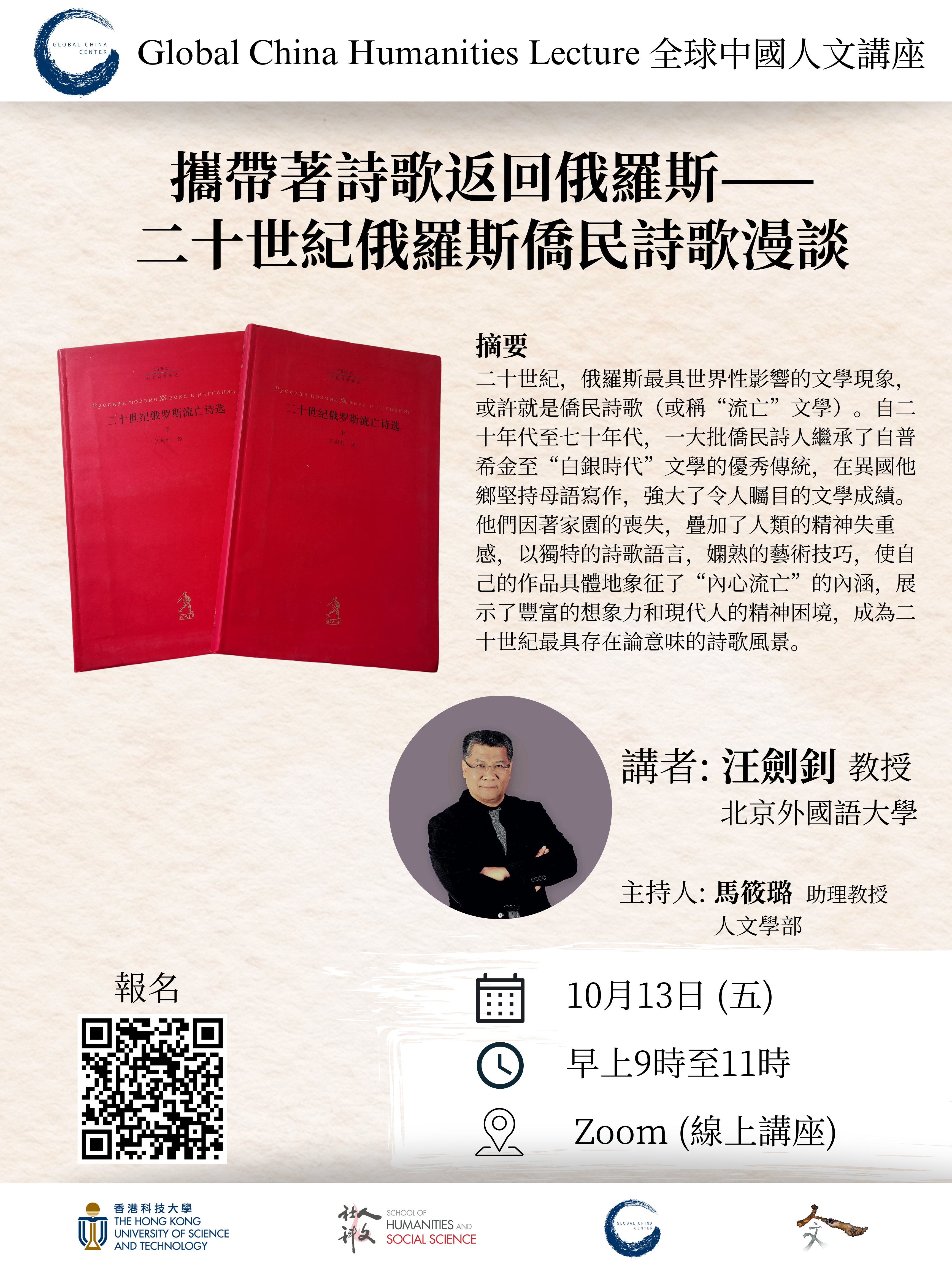Upcoming Events
No workshops were found.
Past Events
攜帶著詩歌返回俄羅斯—二十世紀俄羅斯僑民詩歌漫談
二十世紀,俄羅斯最具世界性影響的文學現象,或許就是僑民詩歌(或稱“流亡”文學)。自二十年代至七十年代,一大批僑民詩人繼承了自普希金至“白銀時代”文學的優秀傳統,在異國他鄉堅持母語寫作,強大了令人矚目的文學成績。他們因著家園的喪失,疊加了人類的精神失重感,以獨特的詩歌語言,嫻熟的藝術技巧,使自己的作品具體地象征了“內心流亡”的內涵,展示了豐富的想象力和現代人的精神困境,成為二十世紀最具存在論意味的詩歌風景。 READ MORE...
身體作為政治與情感動員的手段在新聞和宣傳之間的宋教仁肖像照片
通過對1913年由國民黨人策劃的宋教仁遺體照片的生產、使用和流通過程的詳細解讀,呈現了國民黨人在新聞與宣傳實踐中展開的各種嘗試、努力和挑戰。在今天看來,這些舉動既是發揮攝影作為彼時先進視覺傳播手段的嘗試,也是克服新聞攝影的局限以及擴大新聞攝影的動員能力的努力。 READ MORE...

